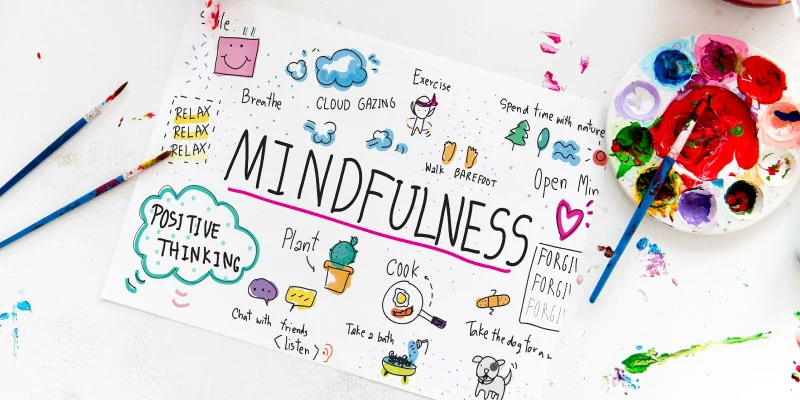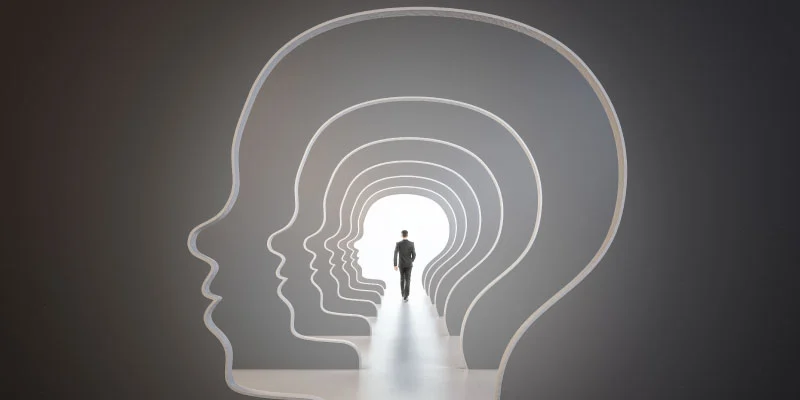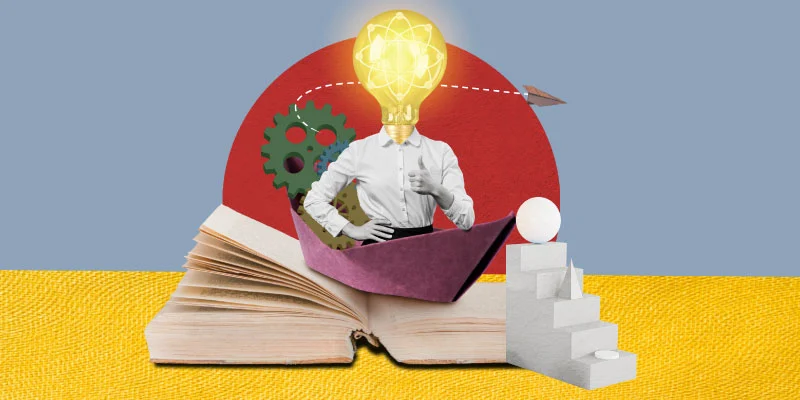Do you wish to be happy, have more influence, be a good decision-maker, and be an effective leader? Perhaps you know the path that helps you become all this. Yes, it’s self-awareness! But we know you might be wondering, i.e., how to be self-aware?
See, knowing the answer isn’t enough. We all need a plan of action to become what we intend to become. However, self-awareness is an essential trait that helps you stay on target and be the best version of yourself.
The benefits of self-awareness are varied depending upon every individual. Some of the examples include increased influence, more significant & better perspective, stronger relationships, etc.
We assume you are here because you wish to be self-aware and know yourself more profoundly, not just on a surface level!
So, here is this guide for you. Let us dig deeper into the concept of self-awareness and discuss ways of developing it!

What Is Self-Awareness?
Self-Awareness is the capacity to focus on yourself and see how you act, behave, and think. If you are highly self-aware, you can evaluate yourself, manage your emotions, understand how others perceive you, and synchronize your behavior with your personal values.
In simpler terms, highly self-aware people can easily interpret their actions, feelings, and thoughts, unlike those who aren’t!
Self-awareness is a rare skill because many of us spiral into emotion-driven interpretations of our situations. This is why inculcating this skill is vital, as it allows leaders to assess their growth and effectiveness and change the course when needed.
Two States Of Being Self-Aware
There are two different types of self-awareness. Here they are!
- Public Self-Awareness
This includes being self-aware of how we appear to others. Because of this consciousness, we are likely to adhere to social norms & behave in socially acceptable ways.
While this kind of self-awareness has benefits, there is also a risk of tipping in self-consciousness. For instance, people who are highly self-aware may spend too much time worrying about what others think of them.
- Private Self-Awareness
This includes being able to notice and reflect on one’s internal state. Those who are privately self-aware are introspective, i.e., they approach their feelings and reactions with curiosity.
For instance, you may be stressed while preparing for an important meeting. Noticing the jitters and appropriately attributing them to your anxiety at your meeting can help you.

Importance Of Being Self-Aware
In order to be self-aware, one needs to know why it is necessary in the first place. A study conducted shows that when we look inward, we tend to clarify our thoughts, feelings, values, behaviors, strengths, weaknesses, etc. As a result, we are able to recognize the effect that we have on others and ourselves.
However, the research claims that people with self-awareness are happy and have healthy relationships. In addition, people also experience a sense of personal and social control and higher job satisfaction.
Moreover, when we look outward, we understand how people perceive us. People who are aware of how others see them are most likely to be empathetic to people with different perspectives. Thus, people whose self-perception matches others are likely to empower others as well!
Benefits Of Being Self-Aware
Being self-aware has a variety of benefits. The specifics of this depend upon the individuals.
Here are some advantages of becoming self-aware.
- One can easily influence outcomes.
- It makes one a better and more effective decision-maker.
- It results in self-confidence.
- It allows you to understand things from different perspectives.
- It frees one from assumptions & preconceived notions.
- It helps build better relationships.
- It reduces stress & makes one happier.

How To Be Self-Aware – Tips To Discover Yourself
If you want to be self-aware, here are some tips you can follow!
- Be Curious About Who You Are
It is vital to be curious to know ourselves if we wish to become self-aware.
Think of it this way:
Our minds & bodies are territories for which we need road maps. Every person has a separate road map. People may wish to ignore some ways and explore other paths.
If you see it this way, you will see that there are many pathways you need to discover to know more about yourself. How far you will go on this journey depends upon what you are ready to explore & experience.
- Let Your Walls Down
When we see something we don’t like in ourselves, the first thing we do is defend ourselves from it. This is one of the preliminary reasons why self-awareness is too challenging to inculcate.
So, what to do in such a situation? Try to let go of your judgment and the instinctual urge to protect yourself.
After all, you become self-aware through the willingness to let go of the defensiveness and being open to seeing yourself through a new perspective.
- Keep A Journal
Journaling is an excellent way to start being mindful. While journaling, pay attention to your day. Ask yourself how you feel.
If there are any negative feelings associated with the day, think about the triggers that have led to it. Similarly, if you have had a joyous day, think about the positive activities that triggered your happiness.

- Ask Others How They See You
Along with building face-to-face social actions, we must also utilize this time to learn how our loved ones perceive us.
To know this, talk to your loved ones and see how they feel about you. Getting perspective on how you behave and come off in certain situations brings awareness that was previously invisible.
In addition, you can go for therapy too!
- Angry At Someone? Try Taking a ‘Third-Party’ Opinion
The benefits of being self-aware not only serve you but your relationships as well.
For instance, if you see yourself getting angry or raising your voice, you might justify it by saying you were angry. But this particular thing has a different impact on the other person.
In such circumstances, try to imagine yourself in the other person’s place. This will improve self-awareness, reduce defensiveness, and might improve your relationship with others as well.
In addition, taking a third person’s opinion can also help, specifically if you are self-critical or self-destructive.
For instance, what would you advise yourself if you were a caring friend watching your behavior? But, of course, that would be taking a third-person perspective!
It is imperative to note that the third person needn’t be someone else. You can be your third person advising yourself!
- Keep Checking In With Yourself
One of the most effective methods to be self-aware is to pause and briefly check in with yourself occasionally.
Ask yourself:
- How am I feeling right now?
- What is driving this feeling?
This may seem absurd and relatively simple, but it’s not! Many might carry a list of possible feelings & emotions with them as they begin asking such questions to themselves.
Thus, it’s better to keep checking in with yourself so that you understand yourself better!

Keep Learning – There’s No End To This Journey!
Apart from these pointers mentioned above, there is a trove of other excellent material that might guide you in your ever-evolving journey of self-awareness.
Read and learn about the psychology and practices of self-awareness. In addition, go through psychology books that encourage the cultivation of self-awareness.
Lastly, you must know that being self-aware is a skill which must be acquired. And you can do the same by signing up for RILCA’s life coaching sessions. Book a session now!








